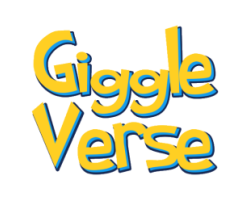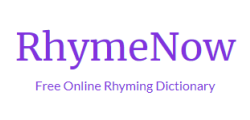What is a “Forced Rhyme?”
Have you ever written a poem, only to be told that the rhymes sound “forced,” but didn’t know exactly what that meant? It can be confusing, because a “forced rhyme” may be any one of a number of different things. All of them, however, can make a poem less enjoyable to read. So, to improve your poetry as much as possible, you’ll want to learn how to avoid each of the various types of forced rhymes.
Rearranging a phrase to put the rhyme at the end of the line
Probably the most common type of forced rhyme is where the poet says something in an unnatural way in order to make the line rhyme. For example, take a look at this couplet:
Whenever we go out and walk,
with you I like to talk.
Now, in normal, everyday English, you would never say “with you I like to talk.” Instead, you would say “I like to talk with you.” And yet, some poets will write this unnatural way in order to force the lines to rhyme with one another; hence the term “forced” rhyme.
Of course, if we changed this to:
Whenever we go out and walk,
I like to talk with you.
We suddenly have no more rhyme. We could force it in the other direction, like this:
Whenever go out and walk we do,
I like to talk with you.
But now the first line doesn’t read naturally. The best way to avoid this problem is to rewrite one or both of the lines until you have two lines that rhyme, both of which read naturally, like this:
To go for a walk and talk with you
is one of my favorite things to do.
Or perhaps like this:
Whenever we go out and walk,
it’s fun to stroll along and talk.
Irrelevant or unrelated information
Another type of forced rhyme is where the poet adds something that isn’t important to the story, or may not even make any sense, just to get a rhyme into the poem. For example, if I said:
I like kittens. I think they’re silly.
I have a brother. His name is Billy.
The second line has nothing to do with the first line. It was only put there to rhyme with the first line. Unfortunately, it also creates a poem that doesn’t make sense.
One way to avoid this is to select a different rhyme word for the first line. You see, only a few words rhyme with “silly”—”chilly,” “filly,” and “lily” come to mind—and none of them have much to do with kittens. So instead of keeping the word “silly,” a better idea might be to change “silly” to a different word, so that it will be easier to find a rhyme that makes sense. Here are a couple of examples:
I like kittens. I think they’re cute.
I like the way they jump and scoot.I like kittens. I think they’re nice.
I like kittens and they like mice.
Extending a line to add a rhyme
Another common type of forced rhyme is when you make a line longer than it should be so that you can tack a rhyme on the end. For example:
As I was walking down the street,
I was looking for some shade so that I could get out of the heat.
As you can see, the second line of this couplet is much too long. There are a couple of ways to fix this. First, you can try removing words from the sentence to make it shorter, like this:
As I was walking down the street,
I looked for shade to beat the heat.
Another way to fix this is to rhyme every other line instead of every line, like this:
As I was walking down the street,
I was looking for some shade,
to get out of the summer heat,
and drink an ice-cold lemonade.
Wrenched rhymes
A “wrenched rhyme” is where the end sounds of the words are the same, but the accents are not on the same syllables. For example:
I like to dance. I like to sing.
I like smiling and laughing.
While sing and laughing both end with “ing,” the word “laughing” is stressed on the first syllable, and is read as “LAUGH-ing,” not as “laugh-ING.” As a result, “laughing” does not rhyme with “sing.” Putting wrenched rhymes in a poem forces the reader to mispronounce words in order to make them rhyme.
The only way to fix this is to replace of one or both of the words with words that rhyme properly. This may also involve rewriting one or both lines, like this:
I like to dance. I like to sing.
I like to run and jump and swing.
Near rhymes
A near rhyme, also called a “slant rhyme” or a “half rhyme,” is when two words almost rhyme, but don’t match exactly. Whenever possible, it is a good idea to avoid near rhymes unless you have a very good reason for using them. Often writers will use near rhymes simply because it’s easier, and they’d rather not do the work and spend the time to come up with a perfect rhyme. Readers tend to view near rhymes as weak writing.
Here are a few of the most common types of near rhymes:
- Assonance – Probably the most frequently used types of near rhymes—especially in song lyrics—is when the words are “assonant,” meaning that they have the same vowel sounds, such as stream / mean or round / cloud.
- Consonance – When the words are “consonant,” it means that they have the same consonant sounds, such as bike / lake or rattle / little.
- Sight Rhymes – “Sight rhymes” are also a form of near rhyme. Sight rhymes are when two words have the same letters at the end, but not the same sound, as in cough / rough / plough or prove / love / grove.
- Plural / singular – Another common type of near rhyme frequently seen in children’s poetry is when one of the rhyming words ends with an “s” while the other does not, such as how / cows or smiles / while. This can be difficult to avoid at times, but it is usually worth the effort, as otherwise it may appear to the reader that the poet is just being lazy.
- Rime Riche – “Rime Riche,” also called “enriched rhymes” or simply “rich rhymes” are when you rhyme a word with itself (bear / bear), with a homophone (bear / bare), or any word where all sounds are the same, including the initial consonant sound, from the last stressed syllable to the end of the word (grace / disgrace, fare / unfair, size / exercise).
Keep an eye out for forced rhymes
Whenever you finish a poem, it’s a good idea to read it over several times and ask yourself if any of the rhymes are forced. And be honest with yourself! It’s easy to let a forced rhyme remain in your poem because you don’t want to go to the trouble of rewriting it. On the other hand, if you make the effort and eliminate all forced rhymes from the poem, you (and your readers) will be glad you did.






